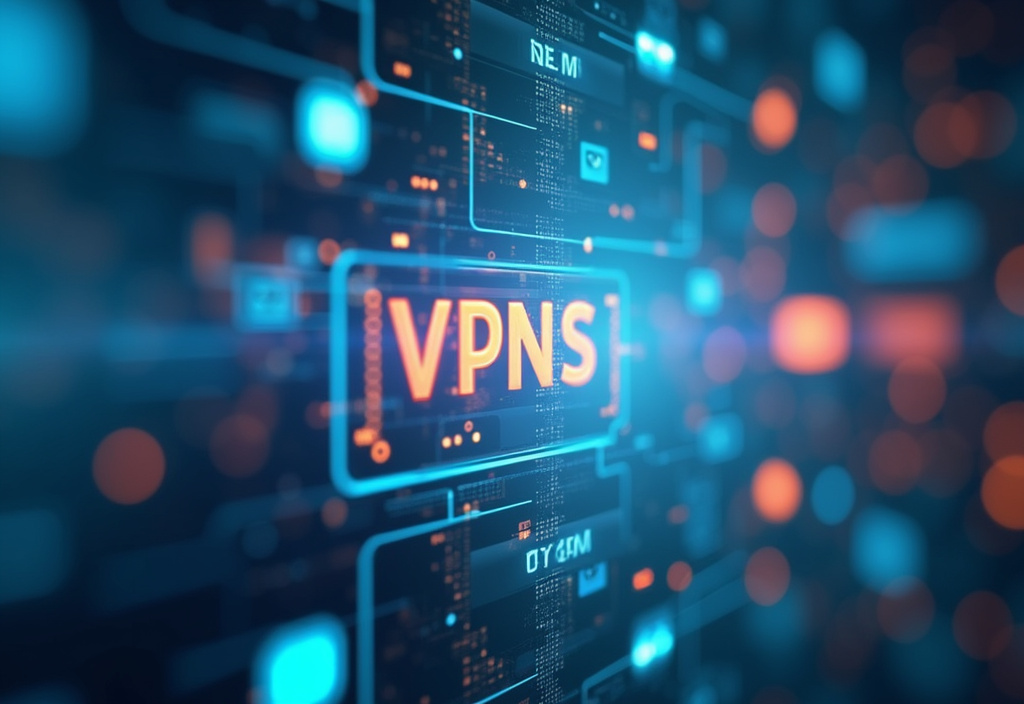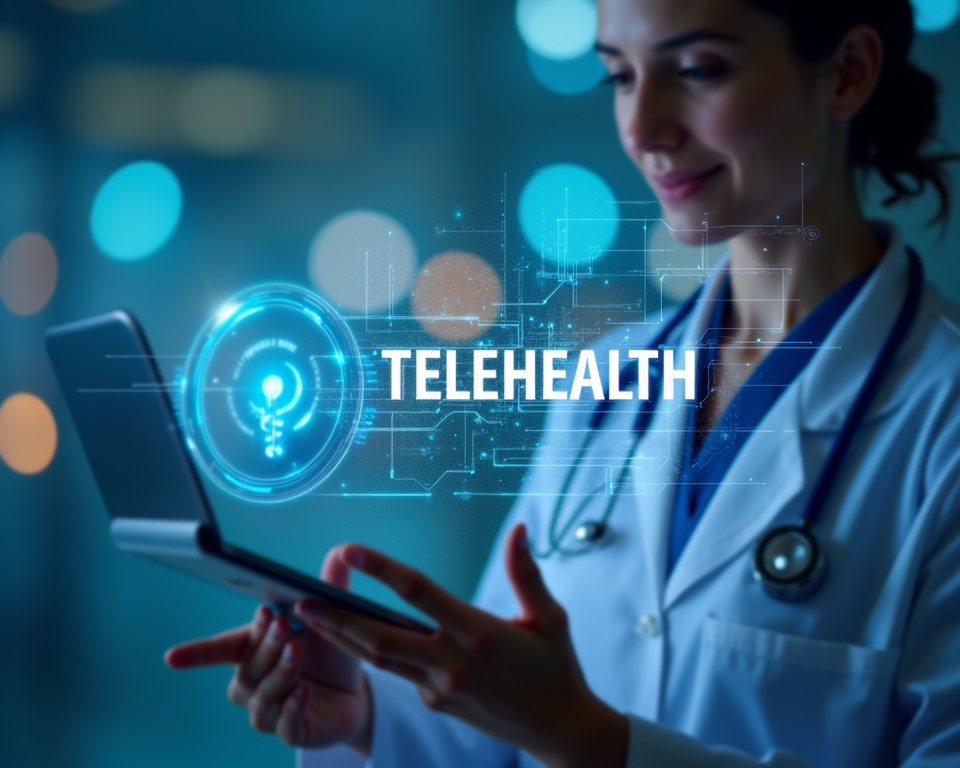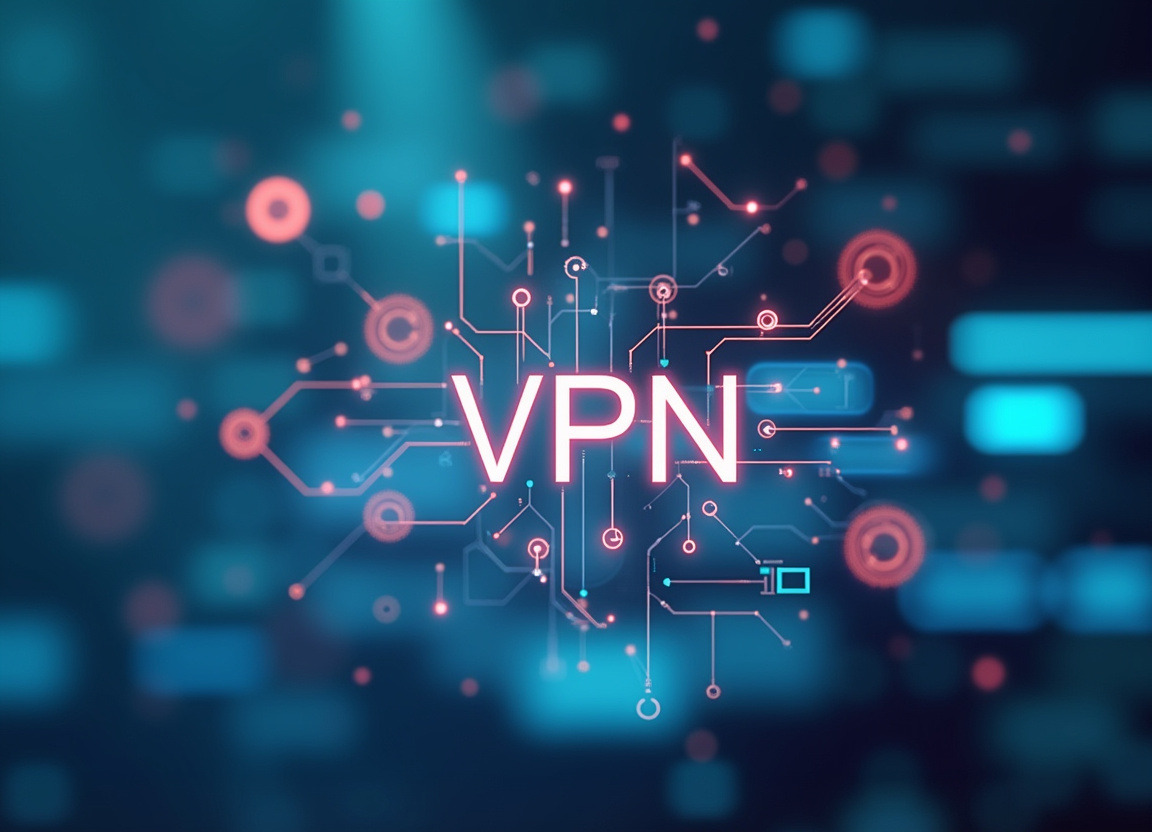VPNs for Healthcare Providers: Securing Patient Communication

Table of Contents
Introduction: The Vital Role of VPNs in Healthcare
In the increasingly interconnected world of modern healthcare, the secure transmission and storage of patient data have become paramount. Healthcare providers are embracing digital technologies to enhance efficiency, improve patient outcomes, and streamline administrative processes. However, this digital transformation also introduces significant vulnerabilities to sensitive patient information, making robust security measures absolutely essential.
This article will delve into the critical role of Virtual Private Networks (VPNs) in safeguarding *patient communication security*, ensuring stringent *health data protection*, and facilitating *compliance* with ever-evolving regulatory requirements. By exploring the multifaceted benefits of a *healthcare VPN*, we aim to demonstrate its indispensable value in fortifying patient trust and maintaining the integrity of healthcare operations. The implementation of a VPN represents a fundamental commitment to protecting the privacy and confidentiality of patient information, an increasingly vital consideration in the digital age of medicine.
The digital revolution has undeniably transformed the healthcare landscape, ushering in an era of unprecedented opportunities for improving patient care. Telemedicine, remote patient monitoring, electronic health records (EHRs), and secure messaging platforms have become integral components of modern healthcare delivery, enabling providers to reach more patients, offer personalized treatment plans, and enhance overall efficiency. However, this technological advancement has also created new avenues for cyberattacks and data breaches, exposing patient data to significant risks.
Cybercriminals are actively targeting healthcare organizations because the information they hold – including personally identifiable information (PII), medical histories, insurance details, and financial records – is highly valuable and can be exploited for various malicious purposes, such as identity theft, fraud, and extortion. A single data breach can have devastating consequences for both patients and healthcare providers. Patients may suffer financial losses, reputational damage, and emotional distress, while healthcare organizations can face hefty fines, legal liabilities, and a significant loss of patient trust.
The reputational damage alone can be irreparable, eroding the confidence of patients and the wider community in the organization's ability to protect their sensitive information. Furthermore, data breaches can disrupt healthcare operations, delaying or hindering patient care, and compromising the integrity of medical research. This underscores the urgent and compelling need for healthcare providers to adopt comprehensive and proactive security measures to protect patient data from unauthorized access, use, or disclosure.
Among the various security tools and technologies available, a VPN stands out as an essential component of a robust cybersecurity strategy. By establishing a secure, encrypted connection between a healthcare provider's network and the internet, a VPN effectively shields patient data from prying eyes. This becomes particularly crucial when healthcare professionals are accessing patient information remotely, using public Wi-Fi networks, or communicating with patients through unsecured channels.
In these scenarios, a VPN acts as a protective shield, preventing unauthorized individuals from intercepting and accessing sensitive patient data. The increasing prevalence of mobile devices in healthcare settings further emphasizes the critical importance of VPNs. Doctors, nurses, and other healthcare staff frequently use smartphones and tablets to access EHRs, communicate with colleagues, and consult with patients remotely.
While these devices offer increased convenience and flexibility, they also introduce new security risks. If not properly secured, mobile devices can become vulnerable entry points for cyberattacks, potentially exposing patient data to unauthorized access. A VPN can provide an additional layer of security by encrypting all data transmitted between these mobile devices and the healthcare provider's network, ensuring that sensitive patient information remains protected even when accessed remotely.
Therefore, the strategic and comprehensive implementation of a VPN is paramount in establishing a secure, compliant, and trustworthy environment for healthcare providers and their patients. A well-configured VPN, combined with other essential security measures, can significantly reduce the risk of data breaches, proactively protect patient privacy, and ensure the continuity of vital healthcare operations. Securing vital patient communication in the digital age is not merely a matter of technical implementation; it requires a holistic approach that encompasses robust policy development, comprehensive staff training, and continuous monitoring to ensure the sustained effectiveness of the security measures in place.
This proactive and multi-faceted approach is essential for maintaining the integrity and confidentiality of patient data in the face of evolving cyber threats.
Understanding HIPAA Compliance and VPN Usage
The foundation of a *healthcare VPN*'s functionality lies in its ability to create a secure and encrypted tunnel for data transmission between a healthcare provider's device or network and a remote VPN server. This encryption process transforms readable data into an unreadable ciphertext, effectively scrambling the information and making it virtually impossible for unauthorized individuals to intercept and decipher the data. The encryption algorithms utilized by VPNs are typically very sophisticated, incorporating industry-standard protocols such as Advanced Encryption Standard (AES) with robust key lengths of 128-bit or 256-bit.
These strong encryption keys provide a high level of protection against brute-force attacks and other complex decryption attempts, ensuring the confidentiality and integrity of sensitive patient data. This robust encryption capability makes VPNs an indispensable tool for safeguarding patient data during electronic communication, particularly when that communication involves sensitive medical information, financial details, or personally identifiable data. One of the most significant benefits of employing a VPN is its ability to effectively protect patient data when accessed over vulnerable public Wi-Fi networks.
Public Wi-Fi hotspots, commonly found in coffee shops, airports, and hotels, are notoriously insecure, often lacking encryption and being susceptible to eavesdropping attacks. Consequently, connecting to a public Wi-Fi network without proper security measures can expose sensitive data to significant risks. When a healthcare professional connects to an unsecured public Wi-Fi network without the protection of a VPN, their data is transmitted in plain text, making it relatively easy for hackers to intercept and steal sensitive information, including patient medical records, login credentials, and confidential financial details associated with patients.
A VPN effectively mitigates this risk by encrypting all data transmitted over the public Wi-Fi network, rendering it unreadable to unauthorized individuals and providing a crucial layer of security for sensitive patient data. Furthermore, VPNs offer an added layer of anonymity and privacy by masking the user's IP address and geographical location. This is particularly important for healthcare providers who may need to access patient information from various geographic locations, whether they are traveling, working remotely, or consulting with patients in different regions.
By routing internet traffic through a remote VPN server, the user's original IP address is hidden, making it considerably more difficult to track their online activity, determine their physical location, or link their actions to their specific identity. This enhanced anonymity helps protect healthcare providers from potential privacy breaches, targeted attacks, and unauthorized surveillance, ensuring that their online activities remain confidential and secure. In addition to safeguarding data in transit, VPNs can also significantly enhance the security of data at rest by implementing various security features and protocols.
Many reputable VPN providers offer advanced features such as DNS leak protection and a kill switch, which prevent data from being exposed even if the VPN connection unexpectedly drops or experiences interruptions. A DNS leak occurs when a user's DNS (Domain Name System) queries are inadvertently routed through their internet service provider's (ISP) DNS servers instead of the VPN's secure DNS servers, potentially revealing their online activity and undermining their privacy. A kill switch, on the other hand, automatically disconnects the user from the internet if the VPN connection fails, preventing any unencrypted data from being transmitted and minimizing the risk of data exposure.
The importance of utilizing a VPN extends beyond simply protecting data from external threats and unauthorized access. VPNs can also empower healthcare providers to enforce stringent internal security policies and prevent employees from accessing unauthorized or potentially malicious websites and applications. By configuring the VPN to block access to specifically designated websites or applications known to be associated with malware, phishing scams, or other security risks, healthcare organizations can significantly reduce the likelihood of malware infections, data leaks, and other security incidents that could compromise patient data.
The enhanced *patient communication security* offered by a VPN is not solely focused on shielding data from external threats; it is also about fostering a secure, controlled environment where healthcare professionals can access, share, and manage patient information safely, responsibly, and in compliance with privacy regulations. This secure environment is essential for maintaining patient trust, safeguarding the integrity of healthcare operations, and upholding the ethical obligations of healthcare providers. A VPN, therefore, serves as a vital component of a comprehensive security strategy that encompasses all aspects of patient data protection.
Practical Applications: Securing Telehealth and Remote Access
*Health data protection* is not merely a technical challenge; it is also a legal and ethical imperative deeply rooted in the principles of patient privacy and confidentiality. Healthcare providers are entrusted with sensitive patient information, and they have a fundamental responsibility to protect that information from unauthorized access, use, or disclosure. Failure to uphold this responsibility can have severe consequences, including legal penalties, financial liabilities, and a significant erosion of patient trust.
A *healthcare VPN* plays a crucial role in helping healthcare organizations meet their legal and ethical obligations by providing a secure and encrypted channel for data transmission, thereby mitigating the risk of data breaches and privacy violations. In the United States, the Health Insurance Portability and Accountability Act (HIPAA) sets forth stringent standards for protecting sensitive patient information, known as protected health information (PHI). HIPAA mandates that healthcare providers implement administrative, physical, and technical safeguards to ensure the confidentiality, integrity, and availability of PHI.
These safeguards include access controls, encryption, audit trails, and security awareness training for employees. A VPN can help healthcare organizations comply with several key HIPAA requirements. For example, HIPAA requires healthcare providers to implement technical security measures to protect electronic PHI (ePHI) during transmission.
By encrypting all data transmitted between a healthcare provider's network and the internet, a VPN helps meet this requirement by ensuring that ePHI is protected from unauthorized interception and access. Furthermore, HIPAA requires healthcare providers to conduct regular risk assessments to identify potential vulnerabilities in their security systems. The implementation of a VPN can be an important component of a risk mitigation strategy, as it addresses the risk of data breaches and unauthorized access to PHI.
Beyond HIPAA, other state and federal laws may also govern the protection of patient data. For example, state data breach notification laws typically require organizations to notify individuals and regulatory agencies in the event of a data breach involving their personal information. By implementing a VPN, healthcare organizations can reduce the risk of data breaches, thereby minimizing the likelihood of triggering these notification requirements.
In addition to legal requirements, healthcare providers also have an ethical obligation to protect patient privacy. Patients trust their healthcare providers to keep their medical information confidential, and any breach of this trust can have devastating consequences for the patient-provider relationship. A VPN can help healthcare providers uphold their ethical obligations by providing a secure and reliable means of communicating with patients and accessing their medical records.
By using a VPN, healthcare providers can reassure patients that their information is safe and secure, even when accessed remotely or over public Wi-Fi networks. The use of a VPN not only ensures compliance and protects patient data but also strengthens *compliance* efforts by providing a clear demonstration of commitment to data security. This is particularly important in the event of an audit or investigation by regulatory agencies.
Demonstrating that a healthcare organization has taken proactive steps to protect patient data, such as implementing a VPN, can help mitigate potential penalties and demonstrate a commitment to compliance with privacy regulations. The ability of a VPN to enhance *compliance* is crucial for maintaining the operational integrity of any healthcare related organization. In the context of *VPN for health*, this translates to better overall security for the patient and confidence in the system.
Therefore implementing a robust VPN is fundamental to ensuring patient satisfaction and safeguarding the trust that the public has in healthcare institutions. The ability of a VPN to shield *health data protection* is not only a technological and legal necessity but also a moral imperative that underscores the integrity and compassion of healthcare practices.
VPNs for Services: A Secure and Private Connection
The selection and implementation of a *healthcare VPN* solution require careful consideration of various factors to ensure that it effectively meets the organization's specific security needs and compliance requirements. Not all VPNs are created equal, and choosing the wrong VPN can leave sensitive patient data vulnerable to attack. Therefore, healthcare providers should conduct thorough research and due diligence before selecting a VPN provider.
One of the first factors to consider is the VPN provider's security protocols and encryption standards. The VPN should support strong encryption protocols such as AES-256, which is widely regarded as one of the most secure encryption algorithms available. Additionally, the VPN should offer features such as a kill switch and DNS leak protection to prevent data from being exposed in the event of a connection drop or DNS leak.
The VPN provider's logging policy is another critical consideration. Some VPN providers log user activity, which means that they track the websites visited, the files downloaded, and the amount of data transferred. This information can be subpoenaed by law enforcement agencies or used by the VPN provider for its own purposes.
Healthcare providers should choose a VPN provider that has a strict no-logs policy, meaning that they do not track or store any user activity. This ensures that patient data remains private and confidential. The VPN provider's server locations are also an important factor to consider.
The closer the VPN server is to the user's location, the faster the connection speed. Healthcare providers who need to access patient data from different geographic locations should choose a VPN provider that has servers in multiple countries. This allows them to connect to a server in the nearest location, minimizing latency and maximizing performance.
The VPN's ease of use and compatibility with different devices are also important considerations. The VPN should be easy to install and configure, and it should be compatible with the devices that healthcare providers use to access patient data, such as laptops, smartphones, and tablets. Furthermore, the VPN provider should offer reliable customer support in case of any technical issues or questions.
In addition to these technical considerations, healthcare providers should also consider the VPN provider's reputation and track record. They should read online reviews and check for any reports of security breaches or privacy violations. They should also ensure that the VPN provider is compliant with relevant privacy regulations, such as HIPAA and GDPR.
Once a VPN provider has been selected, healthcare providers should implement a comprehensive VPN policy that outlines the acceptable use of the VPN and the steps that employees must take to protect patient data. This policy should be communicated to all employees and enforced through regular training and monitoring. The VPN policy should address issues such as password security, data encryption, and data storage.
It should also prohibit employees from using the VPN for personal purposes or accessing unauthorized websites. Regular security audits should be conducted to ensure that the VPN is functioning properly and that patient data is being adequately protected. These audits should be performed by independent security experts who can identify potential vulnerabilities and recommend corrective actions.
The implementation of a *healthcare VPN* is not a one-time event; it is an ongoing process that requires constant vigilance and adaptation. Healthcare providers must stay up-to-date on the latest security threats and vulnerabilities, and they must continuously evaluate and improve their VPN security measures. Proactive security measures are critical to ensuring the ongoing protection of sensitive patient data and maintaining *patient communication security*.
Through thoughtful planning and diligent execution, healthcare organizations can effectively leverage *VPN for health* in order to further secure their vital infrastructure. In the realm of *health data protection*, leveraging a VPN is not simply a technological solution but a commitment to safeguarding the privacy and well-being of patients. Thus, prioritizing the security parameters of a VPN for healthcare should always be utmost in the minds' of those who implement them.
In conclusion, the integration of a *healthcare VPN* is no longer a mere option for healthcare providers but a fundamental necessity for ensuring the security, privacy, and integrity of patient data in the digital age. The increasing reliance on electronic communication and the growing sophistication of cyber threats demand a proactive and robust approach to data protection, and a VPN provides a critical layer of defense against unauthorized access, interception, and disclosure of sensitive patient information. By establishing a secure and encrypted tunnel for data transmission, a VPN effectively shields patient data from vulnerabilities associated with public Wi-Fi networks, remote access, and mobile devices, thereby helping healthcare organizations meet their legal, ethical, and regulatory obligations.
The benefits of implementing a *healthcare VPN* extend far beyond simply protecting data from external threats. A VPN also empowers
Stay Updated
Get the latest VPN news, tips, and exclusive deals to your inbox.




